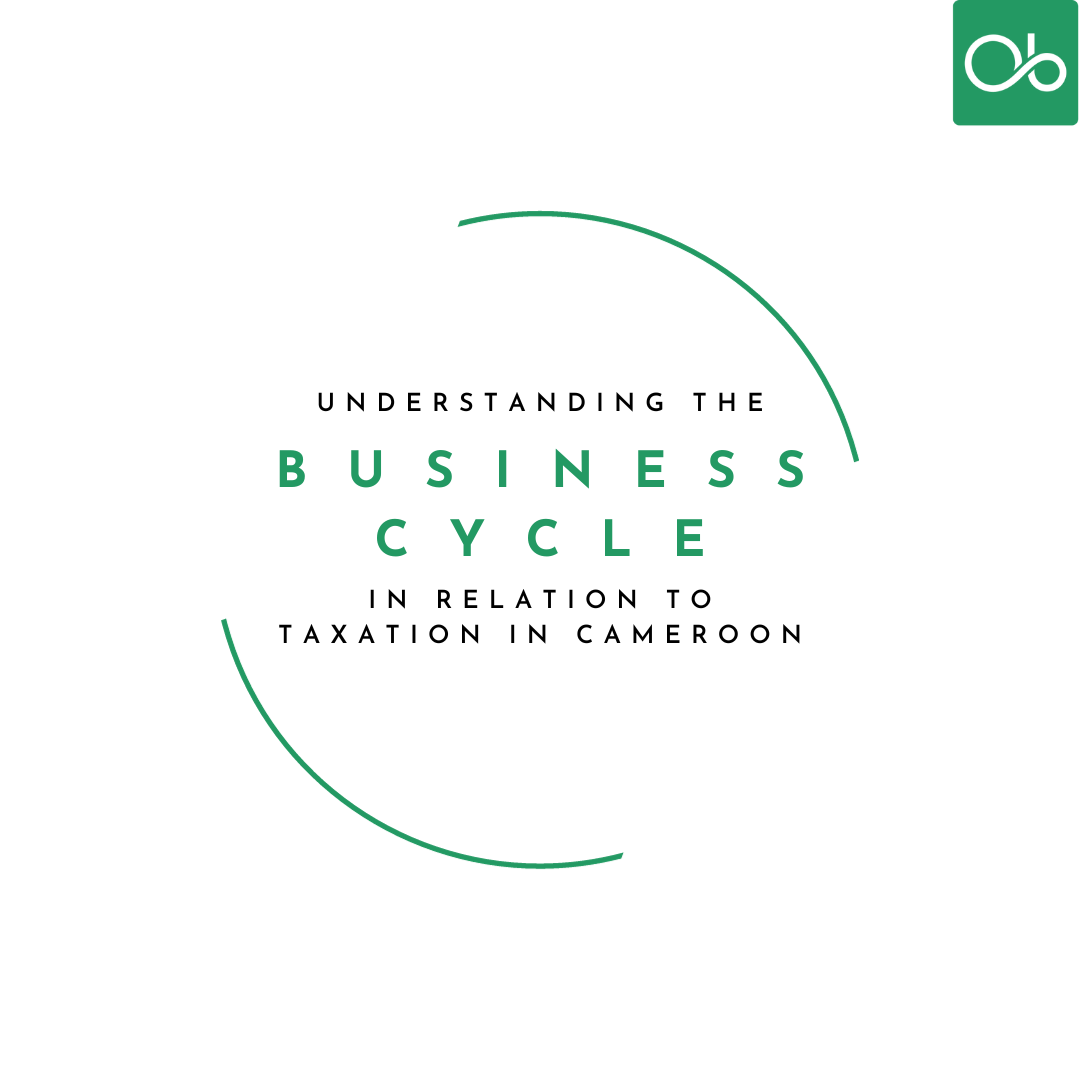The tax law in Cameroon provides provisions for the taxation of profits earned by businesses operating within the country. While specific criteria determine the tax liability of businesses, there is a significant consideration given to the concept of a “full business cycle.”
In cases where a business does not meet the standard operating criteria, its profits may still be subject to taxation if it carries out activities that form a full business cycle within Cameroon.
The business cycle, in the context of taxation, refers to a series of activities conducted by a company within Cameroon that constitute a complete operational cycle.
If this article helped you, you can support our work at OpenHub.
Support OpenHub DigitalIt encompasses various stages, from initial investment and production to sales and revenue generation. By considering the business cycle, tax authorities ensure that businesses engaging in substantial operations within the country are subject to taxation on their profits, even if they do not meet the standard operating criteria outlined in the tax law.
Activities within the Business Cycle
To determine if a business has completed a full business cycle, tax authorities assess the nature and extent of the company’s activities in Cameroon.
While specific activities may vary depending on the industry and nature of the business, a typical business cycle includes the following stages:
- Investment and Business Setup: This stage involves establishing a presence in Cameroon, such as setting up a physical location or acquiring assets for business operations.
- Production and Operations: Once the business is set up, it engages in production and operational activities. This may include manufacturing goods, providing services, or conducting other core business operations.
- Marketing and Sales: Businesses actively promote their products or services and engage in marketing activities to attract customers. This stage involves advertising, sales promotions, and customer acquisition efforts.
- Revenue Generation: As a result of successful marketing and sales efforts, the business generates revenue through customer transactions, sales, and other income sources.
- Profit Analysis and Financial Management: At this stage, businesses analyze their financial performance, assess profitability, and manage their accounts. This involves tracking income, expenses, and overall financial health.
- Reinvestment or Distribution: Businesses may choose to reinvest profits back into the company for growth and expansion or distribute them to shareholders as dividends.
It is important to note that the business cycle is not limited to these specific stages but serves as a general framework to assess the completeness of a company’s operations within Cameroon.
Tax Implications of the Business Cycle
The consideration of the business cycle in determining tax liability ensures that businesses conducting substantial operations within Cameroon contribute to the country’s tax revenue, even if they do not meet the standard operating criteria.
By taxing profits generated from a full business cycle, the tax authorities aim to prevent businesses from evading taxation by artificially structuring their operations to avoid meeting the standard criteria.
Practical Application and Assessment
Assessing whether a business has completed a full cycle requires a thorough examination of its activities within Cameroon. Tax authorities will consider factors such as the duration of operations, the scale of investment, the volume of sales, and the overall economic impact generated by the business.
By evaluating these factors, tax authorities can determine if a business has engaged in significant operations within the country, justifying the taxation of its profits.
It is essential for businesses operating in Cameroon to maintain comprehensive records of their activities, financial transactions, and supporting documentation.
This documentation will be crucial in demonstrating the completion of a full business cycle and ensuring compliance with the tax regulations of the country.
Understanding this concept as per the tax law in Cameroon is vital for businesses operating within the country. By adhering to the tax laws and accurately reporting their profits, businesses can contribute to the development of the country and maintain a positive relationship with the tax authorities.
From Insight to Implementation
Going through the administrative and legal landscape in Cameroon requires more than just information—it requires a grounded local partner. At OpenHub Consulting, we specialize in helping the diaspora and international investors turn their business visions into compliant, operational realities.
If you are ready to move forward, our team is prepared to manage your registration and compliance from start to finish.
Start Your Company Incorporation →Discover more from OpenHub Digital
Subscribe to get the latest posts sent to your email.
If this article helped you, you can support our work at OpenHub.
Support OpenHub Digital


